Catalysis
Catalysis is the process by which a catalyst, a substance that increases the rate of a chemical reaction without undergoing any permanent chemical change itself, speeds up a chemical reaction. This is achieved by lowering the activation energy required for the reaction to occur, making the reaction proceed more rapidly or at lower temperatures than it would without the catalyst.
Types of Catalysts
Catalysts can be classified into several types:
- Homogeneous catalysts: Catalysts that are in the same phase as the reactants.
- Heterogeneous catalysts: Catalysts that are in a different phase from the reactants.
- Enzymes: Biological catalysts that facilitate biochemical reactions in living organisms.
Mechanism of Catalysis
The mechanism of catalysis involves the following steps:
- Adsorption: The reactant molecules are adsorbed onto the surface of the catalyst.
- Activation: The adsorbed reactant molecules are activated, leading to the formation of intermediate species.
- Desorption: The products are desorbed from the catalyst surface, allowing the catalyst to participate in another catalytic cycle.
Factors Affecting Catalysis
Several factors can influence the effectiveness of catalysis:
- Temperature: Generally, an increase in temperature enhances the catalytic activity, up to a certain point where the catalyst may become deactivated due to high temperatures.
- Concentration of reactants: Higher concentrations of reactants can increase the frequency of collisions and, therefore, the rate of catalysis.
- Presence of inhibitors: Certain substances can inhibit or poison the catalyst, reducing its effectiveness.
Applications of Catalysis
Catalysis plays a crucial role in several industrial and biological processes, including:
- Industrial synthesis of chemicals, such as ammonia and various polymers.
- Environmental catalysis for the treatment of exhaust gases and air pollution control.
- Biological processes, where enzymes act as catalysts for metabolic reactions in living organisms.
Study Guide
To understand catalysis effectively, it is important to focus on the following key points:
- Define catalysis and explain the role of a catalyst in a chemical reaction.
- Understand the different types of catalysts and provide examples of each type.
- Describe the mechanism of catalysis, including the steps involved in the catalytic cycle.
- Discuss the factors that can affect the rate of catalysis and explain their influence.
- Explore the various applications of catalysis in industrial, environmental, and biological processes.
◂Biology Worksheets and Study Guides High School. Human biology II
Worksheet/Answer key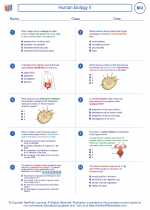 Human biology II
Human biology II  Worksheet/Answer key
Worksheet/Answer key Human biology II
Human biology II  Worksheet/Answer key
Worksheet/Answer key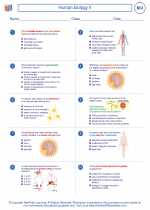 Human biology II
Human biology II  Vocabulary/Answer key
Vocabulary/Answer key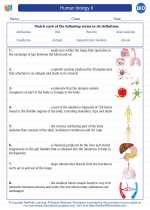 Human biology II
Human biology II  Vocabulary/Answer key
Vocabulary/Answer key Human biology II
Human biology II  Vocabulary/Answer key
Vocabulary/Answer key Human biology II
Human biology II  Vocabulary/Answer key
Vocabulary/Answer key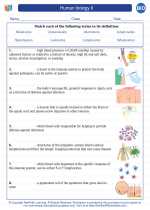 Human biology II
Human biology II  Vocabulary/Answer key
Vocabulary/Answer key Human biology II
Human biology II  Vocabulary/Answer key
Vocabulary/Answer key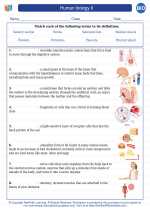 Human biology II
Human biology II  Vocabulary/Answer key
Vocabulary/Answer key Human biology II
Human biology II 

 Worksheet/Answer key
Worksheet/Answer key
 Worksheet/Answer key
Worksheet/Answer key
 Vocabulary/Answer key
Vocabulary/Answer key
 Vocabulary/Answer key
Vocabulary/Answer key
 Vocabulary/Answer key
Vocabulary/Answer key
 Vocabulary/Answer key
Vocabulary/Answer key
 Vocabulary/Answer key
Vocabulary/Answer key
 Vocabulary/Answer key
Vocabulary/Answer key
 Vocabulary/Answer key
Vocabulary/Answer key

The resources above cover the following skills:
LIFE SCIENCE (NGSS)
From Molecules to Organisms: Structures and Processes
Students who demonstrate understanding can:
Develop and use a model to illustrate the hierarchical organization of interacting systems that provide specific functions within multicellular organisms.
Plan and conduct an investigation to provide evidence that feedback mechanisms maintain homeostasis.